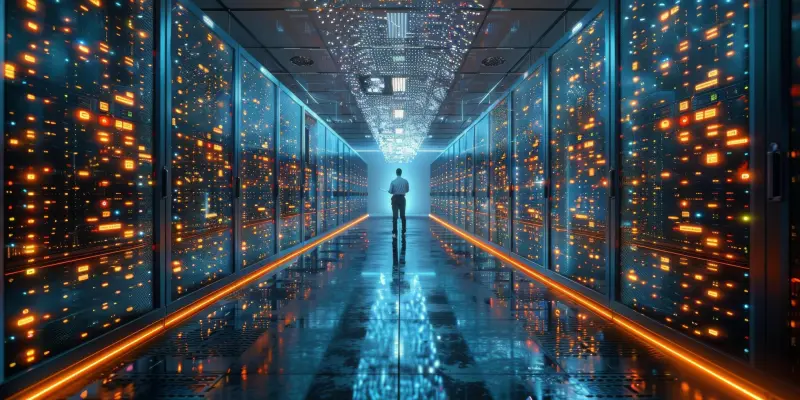Southeast Asia is rapidly emerging as a central point for data center operations, with nations such as Malaysia, Indonesia, and the Philippines witnessing unprecedented growth. This development coincides with increasing power demands and accentuates environmental concerns, mainly due to the region’s current dependence on fossil fuels. As technology continues to burgeon, there is now a vital call for a balanced approach aligning technological advancements with sustainable energy goals. Recent analyses anticipate that, by the end of this decade, up to a third of the emerging data centers in Southeast Asia could be powered by renewable sources such as solar and wind, contingent on pragmatic policy implementations.
Energy Transition Challenges and Opportunities
The Fossil Fuel Dilemma
The pressing issue with Southeast Asia’s growth in data centers is its concurrent reliance on fossil fuels, forming a complex challenge for advocates of energy sustainability. As data centers proliferate, they demand a substantial amount of electricity, leading to increased emissions if powered by nonrenewable energy. The pivotal task is decoupling such growth from an adverse environmental impact. Current energy frameworks have not evolved at a pace comparable to technological advancements, indicating a need for transformative approaches to energy policies and infrastructure. Ensuring that data centers adopt cleaner sources of power would mitigate regional carbon footprints and align with global emissions targets, creating a harmonious balance between growth and ecological responsibility.
Efforts to decrease dependence on fossil fuels must involve substantial investments in renewable infrastructure and regional collaboration. Malaysia, for instance, is projected to experience such a sharp surge in data center power requirements that, by the latter half of this decade, it might exceed Singapore’s national electricity consumption levels. This concerning projection amplifies the urgency for Malaysia and its Southeast Asian neighbors to adopt progressive energy strategies. Implementing forward-thinking legislation and engaging public-private partnerships can foster an environment where renewable energy solutions are integrated into the burgeoning data industry. The region’s governments and stakeholders need to collectively strive for energy transitions that are scalable and sustainable, ensuring that rapid technological developments do not come at the cost of the environment.
The Emerging Role of Renewables
Prominent reports have indicated that the renewable energy sector, particularly solar and wind, bears significant potential to transform the power landscapes of Southeast Asia’s data centers. These sectors are poised to play a crucial role; not only do they promise ample clean power, but they also align with governmental goals for energy diversification and security. However, accessibility to clean energy remains a challenge for smaller companies, which often lack the leverage to secure Power Purchase Agreements essential for transitioning to renewables. Nevertheless, with increasing interest and technological advancement, there lies an opportunity to enhance access and affordability.
Setting national energy efficiency guidelines and transitioning operations from design to grid setup could substantially alleviate the strain on current power grids. Fostering renewable energy projects requires explicit governmental focus on policy reforms and incentives, including tariff adjustments and tax relief for renewable energy initiatives. Such actions could catalyze investments in the renewables sector, fostering innovation and infrastructure development. Regional collaboration, too, is indispensable for pooling resources and expertise, ultimately leading to a unified approach in tackling shared energy challenges. By incentivizing the adoption of greener practices, stakeholders can ensure that steel and concrete digital infrastructures do not compromise ecological priorities.
Creating a Sustainable Energy Future
Policy and Infrastructure Reforms
The ambitions to transform Southeast Asia’s energy landscape are hinged upon a blend of policy reforms and infrastructural advancements. Traditional energy sources are deeply embedded in the current industrial landscape, necessitating a deliberate shift towards novel frameworks prioritizing renewables. Policymakers face the intricate task of formulating strategies that address the immediate energy demands of burgeoning data centers while fortifying the foundational aspects of renewable energy integration. Legislative measures need to focus on facilitating the transition towards cleaner energy through incentives and regulatory frameworks that enable seamless transitions.
Investments in both modernizing existing infrastructure and exploring innovative energy solutions are pivotal to elevating Southeast Asia’s position as a leader in sustainable data solutions. Developing a resilient energy infrastructure is a complex prospect requiring regional entities to work collectively towards common energy efficiency goals. National and international collaboration will be critical in overcoming the intrinsic challenges associated with transitioning vast infrastructures to new energy paradigms. Promoting awareness and engagement among industry players is crucial, ensuring a concerted effort towards embedding sustainability within the industrial fabric.
Ensuring Long-term Growth
Southeast Asia is quickly becoming a key hub for data center operations, with countries like Malaysia, Indonesia, and the Philippines experiencing significant growth. This surge in development is intertwined with rising power demands, yet it also brings environmental concerns to the forefront, primarily because of the region’s heavy reliance on fossil fuels. As technology continues to evolve at a rapid pace, there is a crucial need for a balanced strategy that harmonizes technological progress with sustainable energy objectives. Experts predict that by the end of this decade, up to one-third of the burgeoning data centers in Southeast Asia may utilize renewable energy sources, such as solar and wind power. Achieving this goal will depend heavily on the adoption of effective and realistic policies. Transitioning to cleaner energy could significantly reduce the carbon footprint of data centers, pushing the region towards a more sustainable future. This shift could also position Southeast Asia as a leader in eco-friendly data management.

